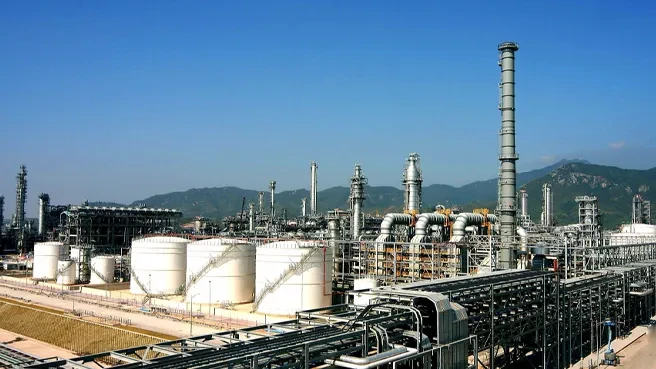
Exploring the Impact of Nitrogen-Rich Fertilizers on Crop Growth and Soil Health
The Role of Nitrogen-Based Fertilizers in Modern Agriculture
The agricultural sector has undergone a significant transformation over the past century, much of which can be attributed to the advent of synthetic fertilizers. Among these, nitrogen-based fertilizers hold a pivotal role in enhancing crop yields and ensuring food security for the growing global population. In this article, we explore the importance of nitrogen, the types of nitrogen-based fertilizers available, their application in farming practices, and the potential environmental impacts associated with their use.
The Importance of Nitrogen in Agriculture
Nitrogen is an essential macronutrient for plants. It is a key component of amino acids, which are the building blocks of proteins, and nucleic acids, which form the genetic material of all living organisms. Approximately 78% of the Earth's atmosphere is made up of nitrogen gas (N2); however, most plants cannot utilize atmospheric nitrogen directly. Therefore, it must first be converted into a more reactive form through biological or industrial processes. Nitrogen-based fertilizers provide this reactive nitrogen, making it readily available to crops and significantly improving their growth and productivity.
Types of Nitrogen-Based Fertilizers
Nitrogen-based fertilizers are primarily categorized into two types organic and inorganic (synthetic) fertilizers. Organic nitrogen fertilizers include natural materials such as manure, compost, and plant residues. These fertilizers release nitrogen slowly and improve soil structure and fertility over time.
In contrast, inorganic fertilizers are manufactured through industrial processes and provide nitrogen in a readily available form. The most common nitrogen-based synthetic fertilizers include urea, ammonium nitrate, and calcium nitrate. Urea is the most widely used nitrogen fertilizer globally due to its high nitrogen content (around 46%) and cost-effectiveness. Ammonium nitrate, on the other hand, combines ammonium and nitrate, offering a balanced supply of nitrogen for various crop types.
Application in Farming Practices
nitrogen based fertilizer

The effectiveness of nitrogen-based fertilizers depends on various factors, including application timing, method, and the specific crop being cultivated. Farmers must consider the growth stage of the crop to optimize nitrogen uptake and minimize losses. For example, applying fertilizer at the beginning of the growing season can help establish a strong root system, while side-dressing during the growing season can boost nitrogen availability as the crop demands increase.
Moreover, the method of application can significantly affect efficiency. Broadcasting is a common technique where the fertilizer is spread evenly over the soil surface. However, methods like banding or fertigation (applying fertilizer through irrigation systems) can enhance nutrient absorption by placing the fertilizer closer to the root zone, reducing nitrogen losses to the atmosphere or runoff.
Environmental Concerns
Despite their benefits, the extensive use of nitrogen-based fertilizers raises several environmental concerns. One major issue is nitrogen leaching, which can lead to water pollution. When excess nitrogen is washed away from agricultural fields, it can contaminate groundwater and surface water, leading to eutrophication. This process promotes algal blooms in water bodies, which deplete oxygen levels and harm aquatic life.
Additionally, the application of nitrogen fertilizers can contribute to greenhouse gas emissions, particularly nitrous oxide (N2O), which is a potent greenhouse gas. The improper management of nitrogen in agriculture not only affects local ecosystems but also contributes to broader climate change issues.
Conclusion
Nitrogen-based fertilizers are indispensable tools in modern agriculture, significantly increasing crop productivity and helping to meet the food demands of a growing global population. However, their use must be carefully managed to mitigate environmental risks. Strategies such as precision agriculture, which involves tailoring fertilizer applications to the specific needs of crops and soil conditions, can help optimize nitrogen use efficiency. By balancing the benefits of nitrogen fertilizers with their potential environmental impact, we can ensure sustainable agricultural practices that support both human and environmental health. Sustainable management of nitrogen use will be crucial as we strive for a resilient agricultural system capable of feeding future generations.
-
PE and PP Plastics with Benzotriazole AdditivesNewsJun.12,2025
-
How Glacial Acetic Acid Balances pH to Combat Food SpoilageNewsJun.12,2025
-
Food Additives in China: Embracing the GreenNewsJun.12,2025
-
Cyanide Mining Gold Extraction and the Rise of Complementary ChemicalsNewsJun.12,2025
-
Ammonium Nitrate in Pharmaceutical ManufacturingNewsJun.12,2025
-
Aluminum Hydroxide in Glass and Ceramics ManufacturingNewsJun.12,2025
-
Mining Chemicals: Cyanide in Gold MiningNewsJun.04,2025
Hebei Tenger Chemical Technology Co., Ltd. focuses on the chemical industry and is committed to the export service of chemical raw materials.
-

view more DiethanolisopropanolamineIn the ever-growing field of chemical solutions, diethanolisopropanolamine (DEIPA) stands out as a versatile and important compound. Due to its unique chemical structure and properties, DEIPA is of interest to various industries including construction, personal care, and agriculture. -

view more TriisopropanolamineTriisopropanolamine (TIPA) alkanol amine substance, is a kind of alcohol amine compound with amino and alcohol hydroxyl, and because of its molecules contains both amino and hydroxyl. -

view more Tetramethyl Thiuram DisulfideTetramethyl thiuram disulfide, also known as TMTD, is a white to light-yellow powder with a distinct sulfur-like odor. It is soluble in organic solvents such as benzene, acetone, and ethyl acetate, making it highly versatile for use in different formulations. TMTD is known for its excellent vulcanization acceleration properties, which makes it a key ingredient in the production of rubber products. Additionally, it acts as an effective fungicide and bactericide, making it valuable in agricultural applications. Its high purity and stability ensure consistent performance, making it a preferred choice for manufacturers across various industries.











